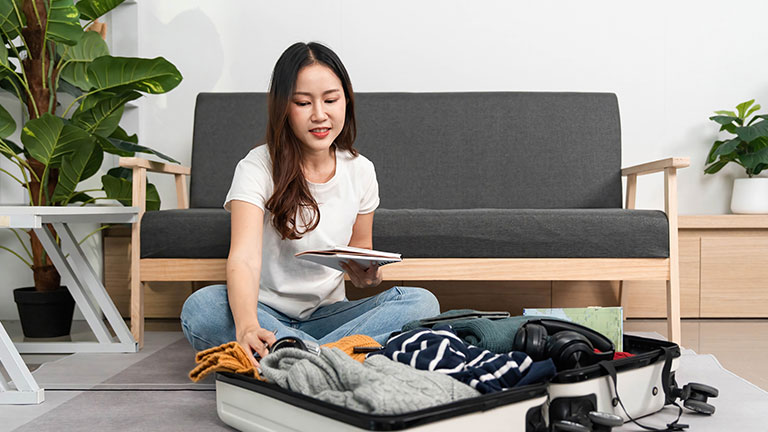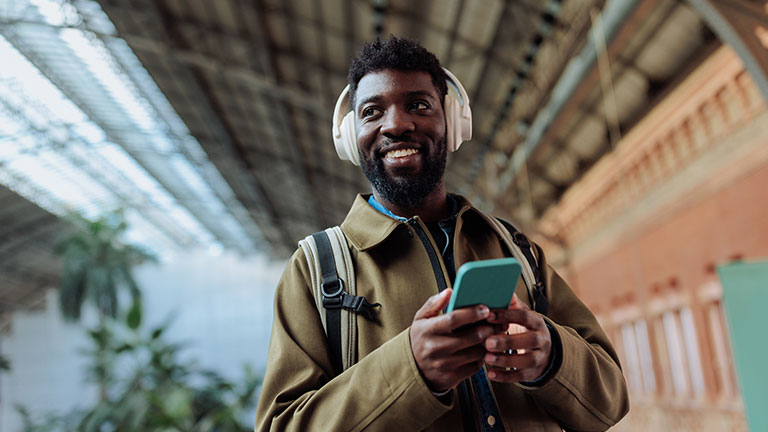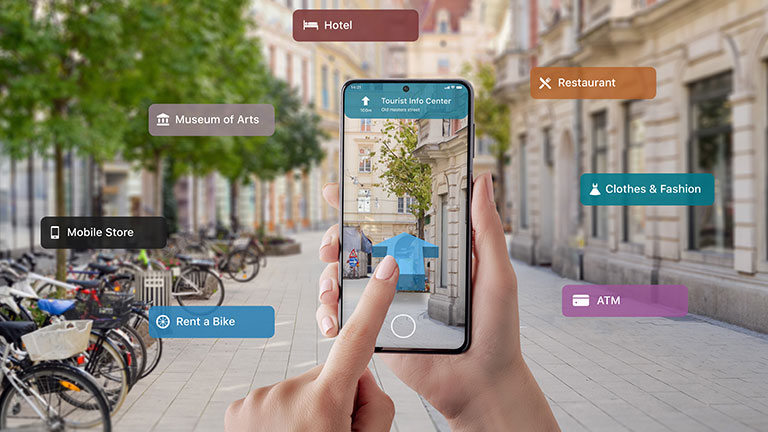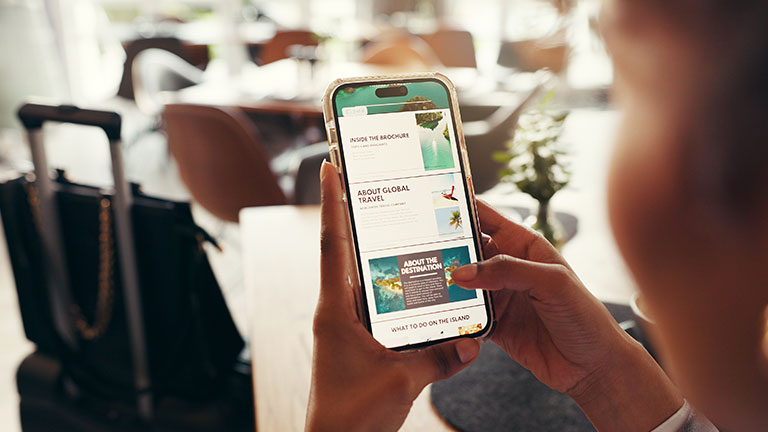Neurodivergent travelers often need additional support when traveling. They may find it difficult to keep track of everything they need or have trouble coping with a new routine. Others may become overwhelmed by crowds or the new sights and sounds that are part of exploring an unfamiliar destination.
“Preparation has dramatically improved my ability to enjoy myself and see many new places,” says Andrew Kahn, associate director of expertise and strategic design at Understood.org, a resource for the estimated 70 million people in the US who think and learn differently. Once Kahn, who has ADHD, developed a system to help plan trips and establish the appropriate resources, “travel became a great source of joy,” he adds.
The type of support each neurodivergent person needs varies and depends on the specific disability, explains Zoe Gross, who has autism and is director of advocacy at the Autistic Self Advocacy Network. Nevertheless, many neurodivergent travelers can have successful trips with proper planning.
We chatted with Kahn, Gross, and other disability experts for their top tips on how neurodivergent travelers can plan and enjoy stress-free travels. Here’s what they shared.

Pack Intentionally
Neurodivergent travelers may have a hard time figuring out what to pack, which can cause stress and inconvenience if they forget something important. “I’ve paid a hefty ‘ADHD tax.’ That’s the extra costs I incur for my ADHD-related errors by forgetting things like chargers, toiletries, or, in one case, a pair of dress shoes,” says Kahn.
Making a detailed list can help, he suggests. For example, instead of writing “toiletries” on a packing list, write down each item you need to bring, such as a toothbrush and toothpaste, razor and shaving cream, and so on.
To help with packing, Kahn also recommends putting specific tasks and events at the top of your list. “It’s common for those with ADHD to forget items they need if they are specific to their destination,” he says. Instead, add items like “check weather” or “need clothing for formal dinner” to ensure everything you need for your trip makes it into your suitcase.

Bring comfort items
Some neurodivergent travelers may struggle with changes to their routine. Bringing comfort items to provide additional support can help, explains Dr. Christina Lee, a psychiatrist and regional medical director of mental health at Kaiser Permanente in Baltimore. To prevent sensory overload, she recommends that neurodivergent travelers use weighted blankets, sound-blocking headphones, sunglasses, and calming music.
Kahn also advises travelers to take movement breaks frequently and bring plenty of safe snacks for comfort and to ensure those with sensory aversions and dietary restrictions don’t go hungry.

Familiarize yourself with new environments
The thought of traveling somewhere new may be distressing for neurodiverse travelers. “Practicing travel routines and familiarizing oneself visually with new environments can reduce anxiety and promote a sense of control and understanding,” says Dr. Lee.
Gross echoes that advice. “This could range from videos of people touring a specific museum to a guide explaining how to use public transit at the destination,” says Gross. Many hotels and attractions have photos and videos on their websites that can help neurodivergent travelers feel more confident.
If the thought of taking a trip still seems overwhelming, Kahn also encourages neurodivergent travelers to start with a short trip close to home, which may be more manageable.
Stick to routines as much as possible
According to Dr. Lee, “the more structure and predictability that can be built into the schedule, the better.” If possible, try to follow the same morning or bedtime routine, keep mealtimes consistent, and incorporate downtime into your daily plans. This can help prevent neurodivergent travelers from becoming overstimulated while they are away from home.

Create a detailed itinerary
Creating a predictable and detailed itinerary, including emergency plans, can help a trip run smoother for neurodivergent travelers. The itinerary should also include clear expectations, such as waiting times and sensory considerations such as bright lights or loud sounds, adds Lee.

Choose a neurodivergent-friendly location
Some locations, including hotels, attractions, and other points of interest, do a great job accommodating neurodivergent guests. Dr. Lee recommends researching neurodivergent-friendly locations and choosing the ones that will work best for each person’s specific needs.
“Many reputable travel organizations list certified autism-friendly resorts on their websites. These locations, which undergo rigorous training and certification, offer specialized services such as sensory-friendly environments, trained staff, and customized dining options to ensure a comfortable and supportive experience,” she says.
Autism Travel and Autism Double Checked both list resorts, hotels, and attractions that are committed to providing support to neurodivergent guests. For cruisers, Autism on the Seas’ programs assist autistic individuals on a variety of sailings.

Research programs that provide accommodations for neurodivergent travelers
Several worldwide programs provide accommodations to address the specific needs of neurodivergent travelers. The Hidden Disabilities Sunflower program allows anyone to subtly let others know that they have a hidden disability and may need additional support. To participate, travelers can buy an inexpensive pin, lanyard, or card from the company’s website or pick one up for free at select airports.
When neurodivergent travelers fly, they can also request that their airline add the Developmental Disability Needing Assistance (DPNA) code to their airline ticket to signal to airline staff that they may require arrangements such as early boarding or guaranteed seating with a companion. Travelers also may want to consider acquiring access to airport lounges where they can wait for flights in a quieter, less crowded location.
…..
Proper planning along with taking advantage of a growing number of resources for neurodivergent travelers can make all the difference in alleviating the stress and maximizing the enjoyment of your next vacation.

